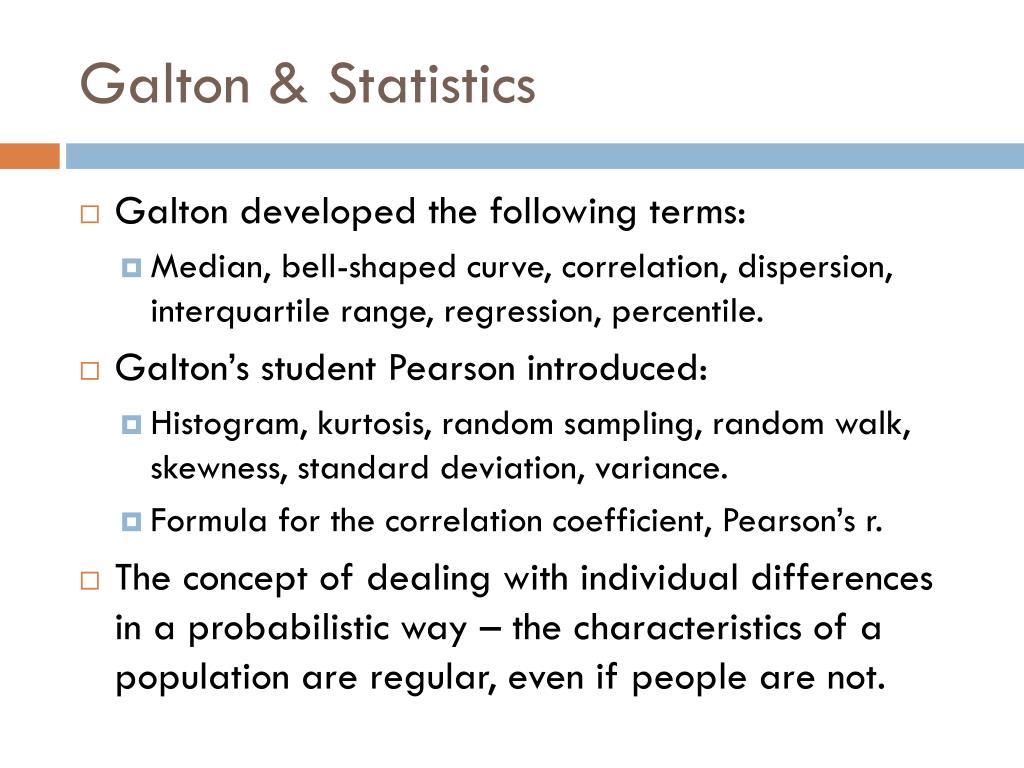

To be clear, this article does not seek to discredit statistical analysis, an invaluable research method.

Given the emerging gold-standard status of statistical analysis in social sciences in general and public policy in particular, students, researchers, and policymakers should critically examine the origins and ethics of the tools they regularly use. Galton sought a means of measuring “the mental peculiarities of different races.” Pearson wrote societies advance “by way of war with inferior races.” Two other prominent eugenicists, Francis Galton and Karl Pearson, developed other basic statistical theories, such as regression analysis, the p-value, and the chi-squared test. For example, he developed the F-test, which was named in his honor, the analysis of variance (ANOVA) test, the concept of variance (he also coined the term “variance”), and the concept of a null hypothesis. It may not be surprising to learn that Fisher was a devoted eugenicist.įisher also profoundly influenced modern statistics. In 1930, the British statistician Ronald Fisher published a book entitled The Genetical Theory of Natural Selection, which argued, among other topics, that women are naturally attracted to men whose genes are best-suited for “reproductive success.” No doubt, to a modern reader, Fisher’s “ sexy son hypothesis” seems peculiar. What is the place of ethics in statistical analysis? While statistics has contributed to scientific advancements, the origins of this discipline are surprisingly dark.


 0 kommentar(er)
0 kommentar(er)
